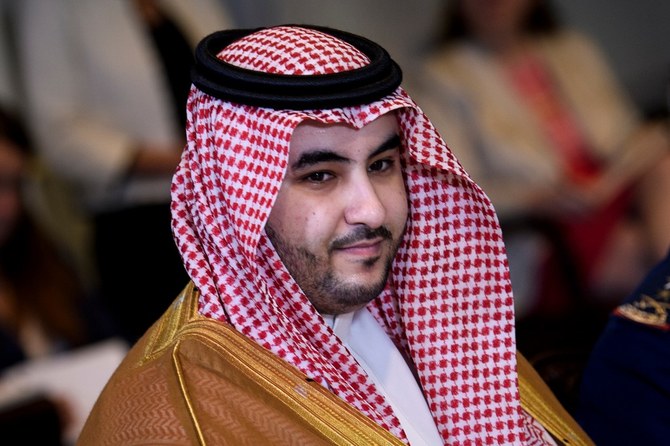DUBAI: Prince Khalid bin Salman bin Abdulaziz, Deputy Minister of Defense, said on Monday that Saudi Arabia was continuing its policy of seeking to establish security and stability in Yemen.
The minister said that Saudi Arabia welcomed the implementation of the Riyadh Agreement and the formation of a new Yemeni government.
President Abed Rabbo Mansour Hadi’s government agreed to form a power-sharing government in line with the Riyadh Agreement signed with the Southern Transitional Council last year.
Today, more than ever, we are looking forward to seeing the Yemeni government lead Yemen and its people to safety.The work is hard and the road is long, but with the resolve of sincere men,differences are rejected, efforts are united,difficulties are reduced, and hope is restored
— Khalid bin Salman خالد بن سلمان (@kbsalsaud) December 20, 2020
The new government, announced by Hadi on Yemeni state TV late on Friday night, consists of 24 portfolios divided equally between the north and south.
“In support of previous efforts to find a comprehensive political settlement, the efforts of HRH the Crown Prince have succeeded in bringing together our Yemeni brothers to implement the military aspect of the Riyadh agreement and the formation of a new government,” Prince Khalid said.
The agreement, which the prince referred to as “a political, diplomatic and military achievement,” was the outcome of months of negotiations between the Yemeni President, the Yemeni government, the Transitional Council, and military leaders in Aden and Abyan.
“The Riyadh Agreement overcame all difficulties and obstacles with the efforts of the Kingdom, the brothers in the Emirates, and in the Coalition,” the prince said.
“Today, more than ever, we are looking forward to seeing the Yemeni government lead Yemen and its people to safety,” added.
The Minister of State for Foreign Affairs Adel Al-Jubeir also praised the developments in Yemen and said it should help reach a political solution to the conflict.
“What has been achieved for dear Yemen in forming a new government in accordance with the provisions of the Riyadh Agreement, is an important step in achieving a political solution, ending the crisis, establishing security and stability, and achieving the aspirations of the Yemeni people,” he tweeted.
Foreign Minister Faisal bin Farhan Al-Saudi echoed the ministers' praise of the new Yemeni government and hoped it would end the current crisis.
Congratulations to our Yemeni brothers for forming the new government. We hope that this step, furthering the Riyadh agreement, will help in achieving peace and stability and in fulfilling the aspirations of the Yemeni people for a political solution that ends the current crisis.
— فيصل بن فرحان (@FaisalbinFarhan) December 20, 2020
















